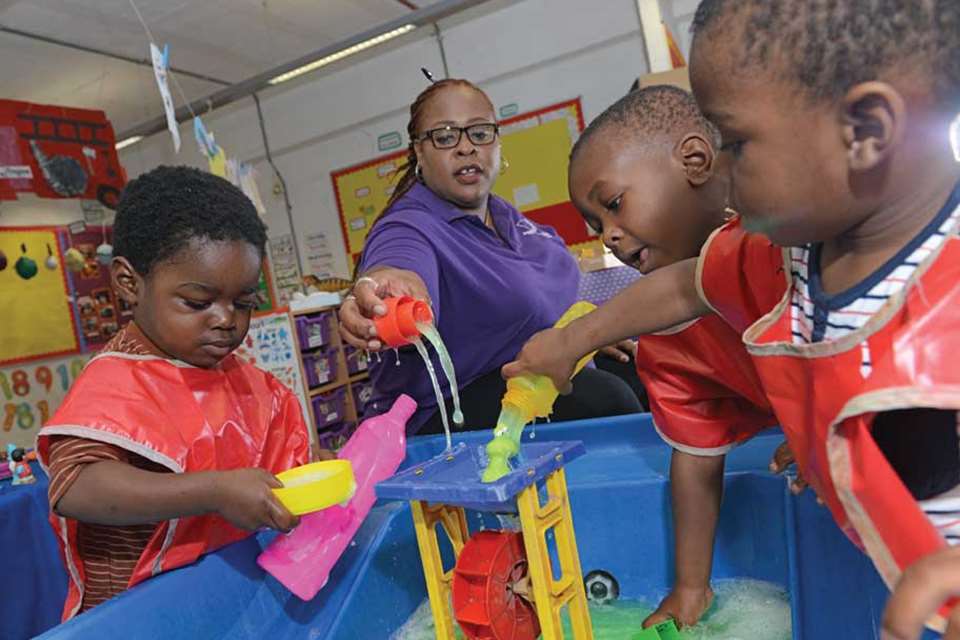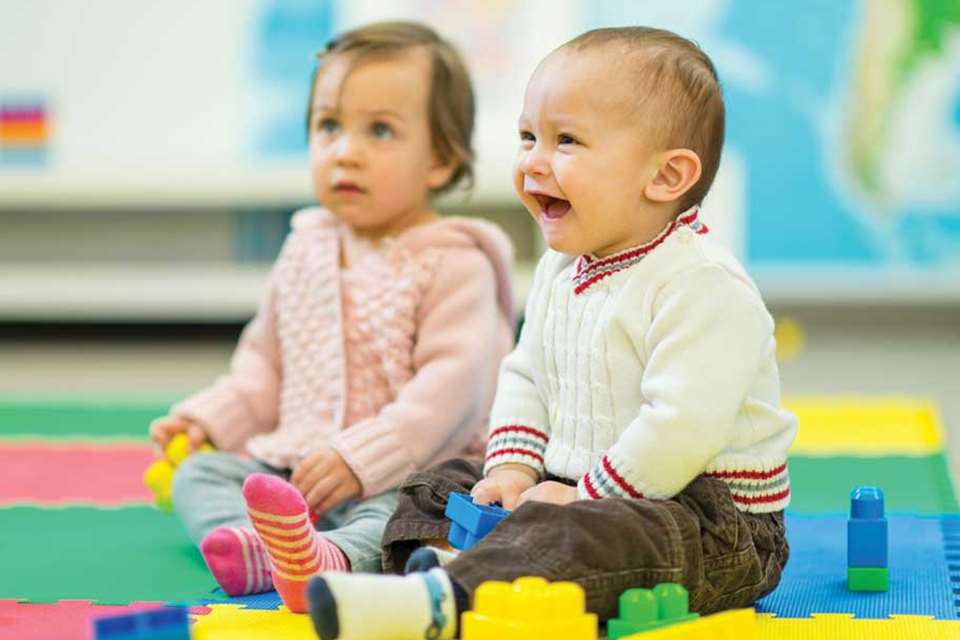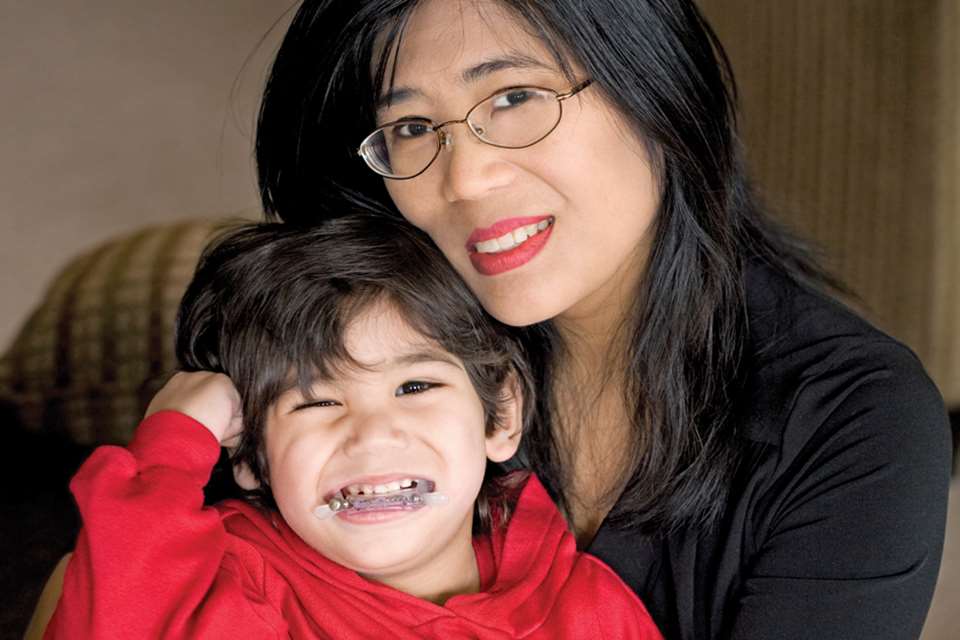A Unique Child:SEND Code of Practice - Think local
Kay Mathieson
Monday, March 23, 2015
How should early years settings be contributing to the 'local offer' for children with special educational needs and disabilities? Dr Kay Mathieson offers some guidance.

 Our local authority has contacted early years settings inviting us to contribute to the 'local offer' for children with special educational needs and disabilities (SEND). We are not sure how to respond and unclear about what an Early Years Foundation Stage (EYFS) setting could contribute to the local authority 'local offer'. How should we respond?
Our local authority has contacted early years settings inviting us to contribute to the 'local offer' for children with special educational needs and disabilities (SEND). We are not sure how to respond and unclear about what an Early Years Foundation Stage (EYFS) setting could contribute to the local authority 'local offer'. How should we respond?
 The SEND Code of Practice 0-25 Years (2014) requires all local authorities to publish their 'local offer' detailing the provision and services available in the local area to support children and young people with SEND.
The SEND Code of Practice 0-25 Years (2014) requires all local authorities to publish their 'local offer' detailing the provision and services available in the local area to support children and young people with SEND.
The document explains that the local offer has two key purposes:
- To provide clear, comprehensive, accessible and up-to-date information about the available provision and how to access it.
- To make provision more responsive to local needs and aspirations by directly involving disabled children and those with SEN and their parents, and disabled young people and those with SEN, and service providers in its development and review.
Early years settings have 'a duty to co-operate' with the local authority by contributing to the special educational provision available, as described in the local offer, and helping in the development of early education provision in the local area. The local offer is not just a directory of providers, but is intended to be an up-to-date, easily accessible, central source of information for parents, practitioners and those providing services.
WHAT DO PARENTS NEED?
Talking directly with parents whose children have identified needs offers important insights into small changes in practice that can make significant improvements to their experience of our provision. We can't assume that we know what parents - whether their children have SEND or not - would like, but having regular targeted conversations is a manageable way to gather the information. For example, you can have a specific conversation about daily arrival and departure arrangements, how well they work, and whether either of the following would make it more parent friendly:
- Having more flexible arrival and departure times so that space for wheelchairs and buggies is less pressured and the transition for the children (with or without SEND) less fraught.
- Having a member of staff available to be with the children in buggies as other children are taken to their key person.
Offering possibilities as a starting point opens up discussions and creates a situation for parents to add their own thoughts and suggestions.
PARENTS' VIEWS
Parents of children with SEN report considerable difficulties finding early years settings that welcome their children (Cheshire et al, 2011). Their searching includes such frustrations as: lack of information, being 'passed around from person to person' and finding childcare willing to meet their child's needs. Further evidence appears in the Childcare Costs Survey (2007) from the Daycare Trust (now part of the Family and Childcare Trust), raising issues such as 'lack of appropriate facilities, suitably trained staff, or support tailored to individual needs'.
Our contributions to the local offer should communicate how we meet a child's existing or emerging needs, as well as our attitude to inclusive practice. The first step is involving current parents in ongoing discussions about improving their experience as members of your setting community. This can't be achieved effectively through an annual questionnaire. Simple techniques such as offering a choice of actions, for example using funds for a piece of equipment or a specialist running a parent information session, can really engage parents.
The first requirement from all parents is that they receive a welcoming and professional response from staff. Parents naturally feel anxious about leaving their child, but this is more manageable if the practitioners demonstrate: a positive attitude, secure knowledge, competence and confidence, and are motivated to continually improve their practice.
This can be shown through examples of flexibility with the 'settling-in' process and the importance of understanding the child's needs.
Practitioners often say they welcome children with SEND, but they have not been approached. Finding out about SEND needs in the local area through the local Family Information Service, parent support groups or SEND provision can help to understand this gap. Inviting a local specialist such as a speech and language therapist, early support worker, children's disability specialist, health visitor, educational psychologist or representative from the Parent Carer Forum to a staff meeting or event can help you understand existing services.
CONTRIBUTING TO THE LOCAL OFFER
The EYFS states that settings must have arrangements in place to support children with SEND. The SEND Code of Practice (2014) recognises this support as that which is additional to or different from the offer for the majority of children. Thinking about the prime areas of learning, the following are some examples of support that might be included in the local offer.
Communication and Language
- Working with advice from the local speech and language team to improve practitioner knowledge about early language development, providing a language-rich environment tailored to the needs of current children.
- Engaging parents in detailed understanding of their child's language development and using a programme of fun ways to encourage their child's use of language.
- Using targeted small group or individual activities such as those highlighted through the Every Child a Talker or Inclusion Development Programme.
- Providing resources for parents to use at home to encourage emerging speech and language comprehension.
Personal, Social and Emotional Development
- Linking with local specialist provision, advisers and health and voluntary sector providers for advice and support to increase practitioner confidence and knowledge about the behavioural implications of typical and atypical child development.
- Inviting external specialists to deliver information sessions for parents and practitioners about specific topics such as bedtimes, mealtimes, toileting and tantrums.
- Demonstrating a proactive approach to ensure children's well-being and mental health.
- Engaging parents in developing coherent approaches to behavioural learning in the setting, recognising the impact of developmental progress.
- Targeted small group or individual activities designed to nurture behavioural learning in response to a child's needs.
Physical Development
- Building links with the local occupational therapy team for advice/information and awareness raising to increase practitioner confidence and knowledge.
- Offering accessible premises and planning the layout of provision with awareness of the needs of the child, including those with SEND.
- Demonstrating awareness of sensory impact of the environment with consideration of noise levels, colours used in decor and temperature as well as the influence of smells from kitchen, bathroom and cleaning materials on the daily experience of the children - particularly those with sensory impairments or integration difficulties.
- Providing a challenging environment accessible for all children, including those with physical impairments or using wheelchairs, with frequent and regular access to outdoor spaces throughout each day.
- Supporting independent toileting in partnership with parents regardless of the age of the child.
- Offering healthy food and accommodating a range of specialist dietary requirements and levels of independence in feeding.
- Giving case studies of specific SEND support you have implemented such as use of gastric/nasal feeding tubes or tracheostomy tubes evidences understanding of care plans, technical procedures and inclusive attitude.
SOURCES OF INFORMATION
The Inclusion Development Programme booklets (available from www.foundationyears.org) and the accompanying DVD clips (available by internet search 'idponline') are also a useful resource with practical strategies. The three books in the series focus on supporting children with speech, language and communication needs; behavioural, emotional and social difficulties; and those on the autism spectrum.
In addition, the Early Support materials and website (available from www.councilfordisabledchildren.org.uk/earlysupport) have been developed in partnership with parents and offer a wealth of information and practical materials.
Looking beyond the setting for advice and collaborating for professional development gives powerful messages about your attitude, competence and knowledge. Enabling staff visits will inform debate, challenge and joint problem solving and lead to increasingly responsive provision.
CONCLUSION
Contacting the local offer team will clarify the information needed and ensure you are communicating an accurate reflection of your practice and attitude to children with SEND. The local offer has the potential to bring coherence to the support available for families, including the availability of high-quality, welcoming childcare provision.
MORE INFORMATION
Early Years: guide to the 0-25 SEND code of practice, DfE (2014), www.gov.uk/government/uploads/system/uploads/attachment_data/file/350685 /Early_Years_Guide_to_SEND_Code_of_Practice_-_02Sept14.pdf
Impact evaluation of the Disabled Children's Access to Childcare pilot (DCATCH), Research Report DFE-RR168 by H Cheshire, V Brown and I Wollny (2011), Department for Education
Special Educational Needs and Disability: a guide for parents and carers, DfE (2014)
Special Educational Needs and Disability Code of Practice: 0 to 25 years, DfE (2014), www.gov.uk/government/uploads/system/uploads/attachment_data/file/398815 /SEND_Code_of_Practice_January_2015.pdf
Supporting Pupils at School with Medical Conditions, DfE (2014)
Mental Health and Behaviour in Schools, DfE (2014).









